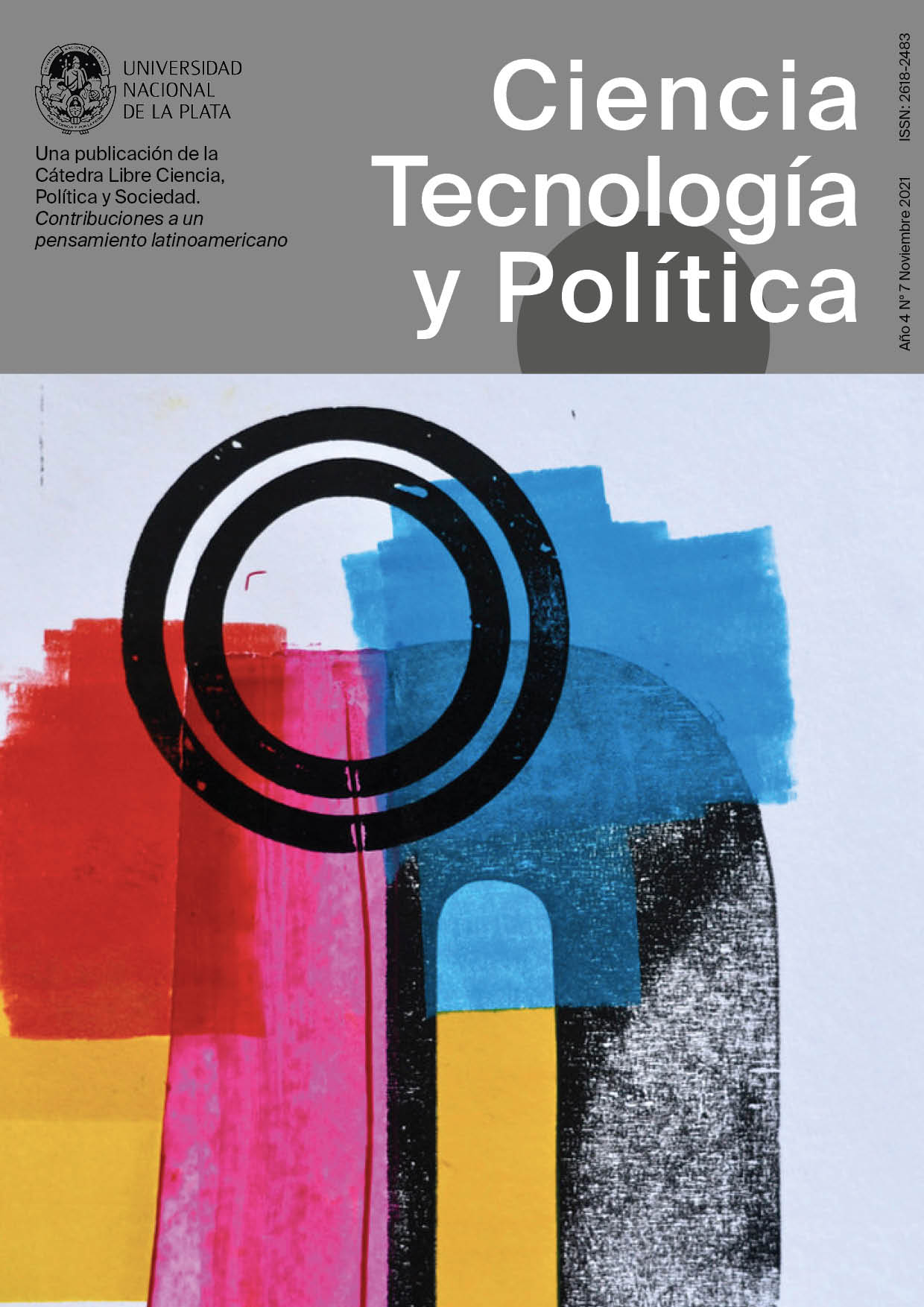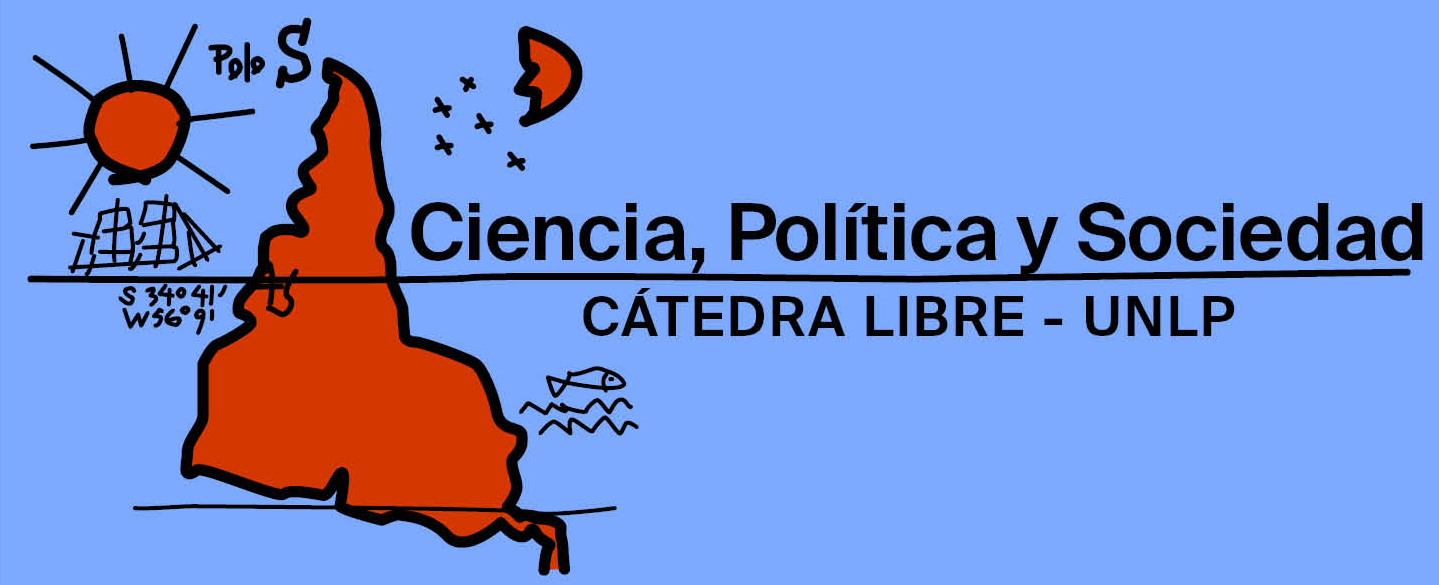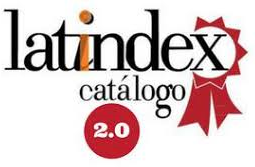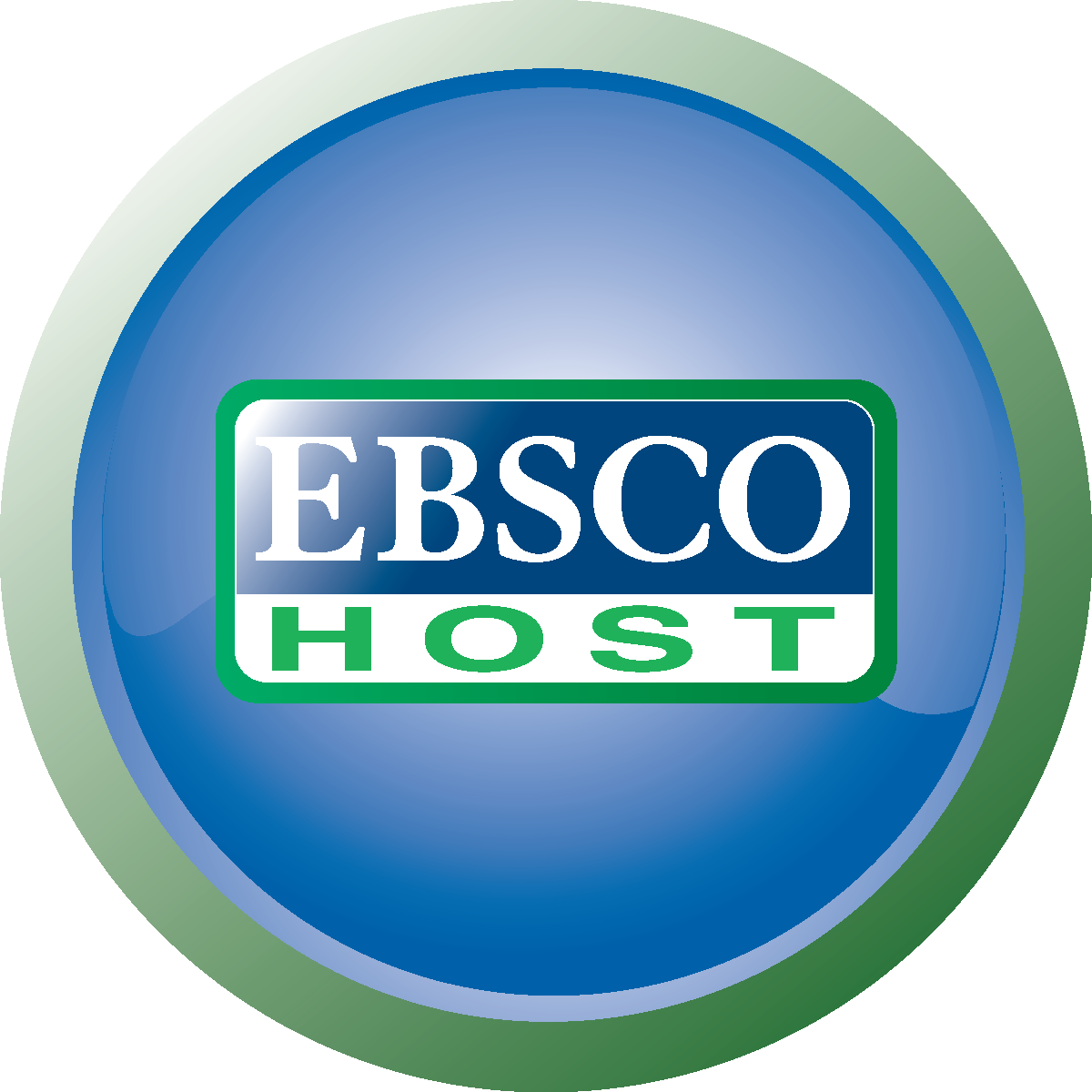Latin american science in the era of COVID-19
DOI:
https://doi.org/10.24215/26183188e060Keywords:
sciencie, technology, science, policy, innovation, COVID-19, Latin AmericaAbstract
This article proposes, on the one hand, to highlight the characteristics of Latin American science in its current context, as a result of its historical trajectory. On the other hand, make an approach to the process that is undergoing in the framework of the pandemic, as well as discuss some trends that are on the horizon. In particular, it aims to highlight that the heterogeneity of the region contrasts with some imitative attitudes in the configuration of scientific and technological systems. It is concluded that the response of Latin American science to the COVID-19 emergency was reasonably adequate and evidenced the progress of academic and clinical research in recent years.
Downloads
Metrics
References
Albornoz, M. (Mayo de 2015). Cambio tecnológico y cultura institucional: el caso del INTA. CTS - Revista Iberoamericana de Ciencia, Tecnología y Sociedad, 10(29), 41-64.
Albornoz, M.; Barrere, R. (2010). Indicadores de ciencia y tecnología en Iberoamérica, Módulo II Política Científica. Curso Iberoamericano de Formación de Agentes de Cultura Científica, Escuela de Ciencia - CAEU OEI.
Bernal, J. D. (1964). Historia Social de la Ciencia, I. La Ciencia en la Historia. Ediciones Península.
Bush, Vannevar (Noviembre de 1999). Ciencia, la frontera sin fin. Un informe al Presidente, julio de 1945, Redes: Revista de estudios sociales de la ciencia, 7(14), 89-156
Elzinga, A.; Jamison, A. (1996). El cambio de las agendas políticas en ciencia y tecnología, Zona Abierta N°75/76.
Etzkowitz, H.; Leydesdorff, L. (1998). The endless transition: A “triple helix” of university–industry–government relations, Minerva 36(3), 203-208.
Freeman, C. (1975). La economía de la innovación industrial. Alianza.
Freeman, C. (2003). La naturaleza de la innovación y la evolución del sistema productivo. En F. Chesnais y J. C. Neffa (Eds.), Ciencia, tecnología y crecimiento económico. CEIL-PIETTE-CONICET
Herrera, A. (1995). Los determinantes sociales de la política científica en América Latina,
Lemarchand, G. (2009). Desarrollo de un instrumento para el relevamiento y la difusión de políticas en ciencia, tecnología e innovación en países de América latina y del Caribe [Informe final]. Proyecto BID-REDES RG-T1287: Fortalecimiento del Sistema de Información sobre la Red Interamericana de Ciencia, Tecnología e Innovación.
Lundvall, B. (Ed.). (1992). National systems of innovation. Towards a theory of innovation and interactive learning. Pinter.
Nowotny, H.; Scott, P; Gibbons, M. (2001). Re-Thinking Science. Knowledge and the Public in an Age of Uncertainty. Polity Press.
Nun, J. (1995). Argentina: el estado y las actividades científicas y tecnológicas, Redes: Revista de estudios sociales de la ciencia, 1(3), 59-98.
Observatorio Iberoamericano de la Ciencia, la Tecnología y la Sociedad de la Organización de Estados Iberoamericanos [OCTS/OEI] (Septiembre de 2020). La respuesta de la ciencia ante la crisis del Covid-19, Papeles del Observatorio, 16.
Observatorio Iberoamericano de la Ciencia, la Tecnología y la Sociedad de la Organización de Estados Iberoamericanos [OCTS/OEI] (s. f.). Explorador de la investigación latinoamericana en COVID-19. Recuperado el 28 de julio de 2021 de http://octs.ricyt.org/reportes/explorador.html
Polanyi, M. (Septiembre de 2014). La República de la ciencia: su teoría política y económica, CTS - Revista Iberoamericana de Ciencia, Tecnología y Sociedad, 9(27), 185-203.
Red de Indicadores de Ciencia y Tecnología -Iberoamericana e Interamericana [RICYT] (2020). El Estado de la Ciencia. Principales indicadores de ciencia y tecnología. Iberoamericanos/Interamericanos. OEI y UNESCO.
Rosemberg, N. (2003). Ciencia, invención y crecimiento económico. En Chesnais, F. y Neffa, J. Ciencia, tecnología y crecimiento económico. CEIL-PIETTE-CONICET.
Sabato, J.; Botana, N. (1970). La ciencia y la tecnología en el desarrollo de América Latina. En Tiempo Latinoamericano. América Latina: Ciencia y tecnología en el desarrollo de la sociedad (pp. 59-76). Editorial Universitaria
Published
How to Cite
Issue
Section
License
The authors whose texts are published in this Journal surrender their ownership rights in favour of the editor in a non exclusive manner, i.e. the authors can enter into other independent and additional contracts to publish their text, e.g. including it in an institutional repository, thematic or otherwise, publish it in a book, or others, as long as it is overtly stated that the work was first published in this Journal.
The responsibility for each published paper as regards its content relies exclusively on its authors, holding the editors harmless for any legal liabilities.
The texts of the Journal shall be published under the Creative Commons 4.0 BY-NC-SA license. Therefore, the editors are free to:
1) Share, copy and redistribute the material using any means or format.
2) Adapt, remix, transform and create from the material, under the following conditions:
a) Attribution — credit to this work must be given in an appropriate manner, providing a link to the license and indicating if changes have been made.
b) Non-Commercial Use — no use may be made of the published material for commercial purposes.
c) Share Equal — Authors remixing, transforming or creating from the material must distribute their contribution under the same license as the original.




































